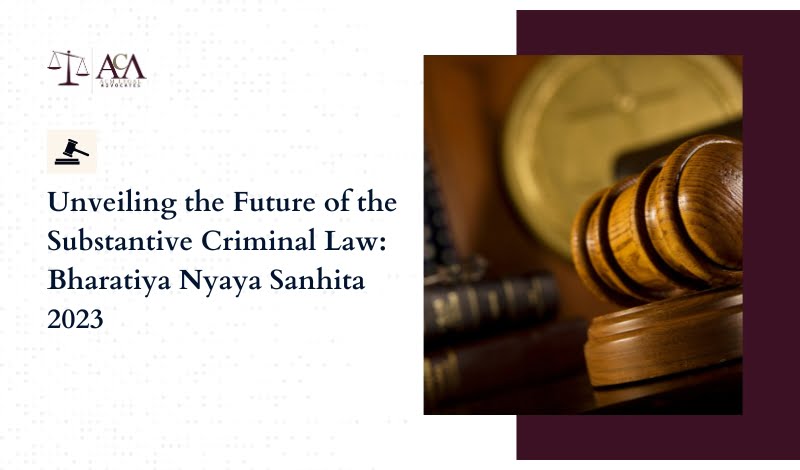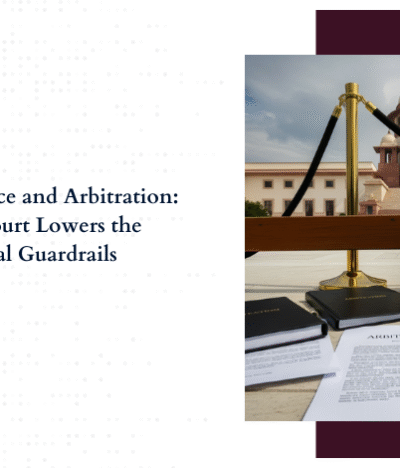Criminal laws are indispensable in structuring a society by setting behavioral norms, preserving public order, and administering justice. They serve as a deterrent against unlawful activities, safeguarding individuals and property. By clearly defining criminal offenses and corresponding penalties, these laws foster a sense of security and public trust.
They uphold the principle of the rule of law, ensuring accountability and equality before the law. Additionally, criminal statutes facilitate the rehabilitation of offenders, promoting their reintegration as law-abiding citizens. Ultimately, criminal laws are vital for cultivating a safe, just, and orderly society.
Any conduct that contravenes or is punishable by law is classified as a crime. Blackstone defines a crime as “an act committed or omitted in violation of a public law either forbidding or commanding it.” In the Indian legal system, criminal liability is grounded on the maxim “actus non facit reum, nisi mens sit rea,” which translates to the act itself does not constitute guilt unless accompanied by a guilty mind.
This principle is pivotal to the entire corpus of criminal law, encapsulating the two critical components of a crime: actus reus (the wrongful act) and mens rea (the culpable mindset). Lord Kenyon, in the seminal case of Fowler vs. Padget (1798), asserted that “the intent and act must both concur to constitute a crime.”
Indian Penal Code 1860
The Indian Penal Code (“IPC”), promulgated in 1860, stands as the bedrock of criminal jurisprudence in India. Conceived by the first Law Commission under the stewardship of Lord Macaulay, it delineates a comprehensive legal framework for the definition of offenses and the imposition of penalties.
The IPC addresses a vast spectrum of criminal acts, encompassing offenses against the state, public order, individuals, and property, among others. It methodically classifies these offenses and prescribes commensurate sanctions, ensuring a methodical approach to the administration of criminal justice.
The IPC is a dynamic statutory instrument, having been subjected to numerous amendments to accommodate the evolving nature of criminal conduct and societal norms. It enshrines fundamental legal principles such as “actus reus” (the wrongful act) and “mens rea” (the culpable state of mind), underscoring the necessity of concurrence between the act and the intent for the establishment of criminal liability. Furthermore, the IPC upholds the principle of proportionality in punishment, ensuring that penalties are commensurate with the gravity of the offense.
The IPC has been instrumental in preserving law and order, safeguarding citizens’ rights, and administering justice. Its robustness and adaptability have ensured its continued relevance for over a century and a half, rendering it an indispensable component of India’s legal architecture and a bulwark against criminality.
Key Sections of IPC
Several sections of the IPC garnered significant attention and frequent judicial scrutiny in India, owing to their extensive application and recurring interpretations in legal proceedings. Few of them are mentioned below:
- Section 299 – Definition of Murder: Specifies the criteria for culpable homicide amounting to murder, including intention and knowledge.
- Section 375 – Definition of Rape: Defines the offense of rape and enumerates circumstances under which consent is not considered valid.
- Section 420 – Cheating and Fraud: Covers fraudulent activities and deceitful practices intended to deceive and defraud individuals or entities.
- Section 354 – Assault or Criminal Force to Woman with Intent to Outrage her Modesty: Addresses offenses related to assault on a woman with the intent to outrage her modesty, encompassing physical acts and verbal abuse.
- Section 498A – Cruelty by Husband or Relatives of Husband: Deals with cruelty inflicted upon a wife by her husband or his relatives, both mental and physical, often in the context of dowry disputes.
- Section 377 – Unnatural Offenses: Criminalizes unnatural sexual acts deemed against the order of nature, with penalties prescribed for offenders.
- Section 406 – Criminal Breach of Trust: Defines and penalizes the misappropriation or breach of trust regarding property entrusted to someone’s care, typically involving financial or fiduciary matters.
Bharatiya Nyaya Sanhita 2023
The Bharatiya Nyaya Sanhita, 2023 (“BNS”), was enacted on December 25, 2023 supplanting the Indian Penal Code, 1860, as the nation’s new penal code. The IPC endured as a vestige of the pre-independence British era, harboring antiquated provisions that diverged from the evolving discourse on contemporary rights and inclusive principles.
BNS is to be enforced from 1st July 2024 and open gates for newer litigation from the lens of substantive criminal law.
The BNS aims to incorporate judicial rulings and expand its jurisdiction to encompass crimes committed via digital platforms, reflecting a proactive stance towards adapting to evolving legal challenges and technological advancements.
Key Changes
After nearly 150 years, the IPC has been re-enacted with the explicit goal of repealing colonial laws and “rationalizing provisions concerning offenses and penalties.” The BNS prioritizes crimes against women, children, and the state, while also modifying fines and penalties across a spectrum of offenses.
BNS has been streamlined, reducing its content to 358 sections, a significant reduction from the 511 sections found in the IPC, 1860.
The Bharatiya Nyaya Sanhita retains most offenses from the IPC while introducing community service as a new form of punishment. Sedition has been decriminalized, replaced by a new offense targeting acts that endanger India’s sovereignty, unity, and integrity.
BNS includes terrorism as a distinct offense, defined as actions intended to threaten the country’s unity, integrity, security, or economic stability, or to instill fear in the population. Organized crime, encompassing activities like kidnapping, extortion, and cybercrime committed by crime syndicates, has also been codified as an offense.
Petty organized crime now carries legal consequences as well. Additionally, BNS establishes a severe penalty for group murders involving five or more individuals based on identity markers such as caste, language, or personal beliefs, punishable by life imprisonment, death, and fines.
Conclusion
The author posits that each societal change elevates the collective pedestal, stressing the necessity of fostering trust in the government and acknowledging its beneficial facets. While the implementation of this law is anticipated to present obstacles, initial challenges are intrinsic to transformative processes aimed at enhancing societal functioning. Embracing change, albeit difficult, ultimately streamlines operations and improves overall quality of life. It underscores the notion that progress often requires overcoming initial hurdles to achieve lasting societal advancements and adapt to evolving dynamics, including those facilitated by legislative reforms.






